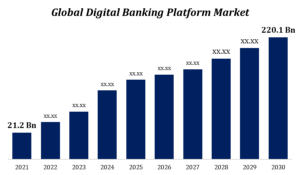Cybersecurity in Fintech: Protecting Digital Assets and Safeguarding Financial Information
In the rapidly evolving landscape of fintech, where technology and finance intersect, ensuring robust cybersecurity measures is of paramount importance. Fintech companies, handling sensitive financial data and facilitating digital transactions, are prime targets for cybercriminals. In this blog, we will explore the significance of cybersecurity in fintech and discuss the strategies and best practices that can help protect digital assets and safeguard financial information.
The Importance of Cybersecurity in Fintech:
- Protection of Financial Data: Fintech companies handle vast amounts of sensitive financial data, including the personal and financial information of their customers. Cybersecurity measures are necessary to protect this data from unauthorized access, theft, or misuse, ensuring the confidentiality and privacy of customers’ financial information.
- Trust and Reputation: Fintech companies heavily rely on building and maintaining trust with their customers. A single cybersecurity breach can severely damage the reputation and erode the trust of customers and partners. Implementing robust security measures not only protects the company’s assets but also instills confidence in users, leading to stronger customer relationships and sustained growth.
- Regulatory Compliance: Fintech companies operate in a highly regulated environment, and adherence to cybersecurity regulations is crucial. Compliance with data protection laws, such as the General Data Protection Regulation (GDPR) or the Payment Card Industry Data Security Standard (PCI DSS), is essential to avoid legal repercussions and financial penalties.
Strategies for Cybersecurity in Fintech:
- Multi-Factor Authentication (MFA): Implementing MFA adds an extra layer of security by requiring users to provide multiple forms of identification to access their accounts. This helps prevent unauthorized access even if login credentials are compromised.
- Encryption: Strong encryption techniques should be employed to protect data both at rest and in transit. Encryption ensures that data is unreadable to unauthorized individuals, even if they gain access to it.
- Regular Security Assessments and Penetration Testing: Conducting periodic security assessments and penetration tests helps identify vulnerabilities and assess the effectiveness of security controls. This proactive approach enables companies to address weaknesses and stay ahead of potential threats.
- Employee Training and Awareness: Fintech companies should invest in ongoing cybersecurity training programs for employees to educate them about best practices, phishing prevention, and social engineering tactics. Employees need to be vigilant and well-informed to identify and report potential security risks.
- Incident Response and Business Continuity Plans: Developing robust incident response plans helps mitigate the impact of cybersecurity incidents. Having a well-defined process in place to detect, respond to, and recover from security breaches is crucial. Business continuity plans ensure that operations can continue in the event of an incident, minimizing disruptions.
Collaboration and Industry Standards:
Fintech companies can benefit from collaborating with industry peers, sharing threat intelligence, and adopting industry best practices. Collaborative initiatives can help establish standards and guidelines to enhance cybersecurity across the fintech ecosystem. Participation in industry forums and information-sharing platforms allows companies to stay informed about emerging threats and potential vulnerabilities.
In the digital era of fintech, robust cybersecurity measures are essential for protecting digital assets and safeguarding financial information. Fintech companies must prioritize cybersecurity to maintain the trust of their customers, comply with regulations, and protect against evolving cyber threats. By implementing strategies such as multi-factor authentication, encryption, regular security assessments, and employee training, fintech organizations can mitigate risks and ensure the security of their platforms. Additionally, collaboration within the industry and adherence to industry standards further strengthen the collective defense against cyber threats. Through a comprehensive approach to cybersecurity, fintech companies can foster a secure and trusted environment for their customers, driving the continued growth and success of the fintech industry.
































